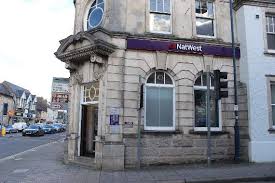M uch has been made of the damage caused to local communities and SME’s by the banks closing branches. The number in recent weeks has been staggering. However it will be interesting to see the impact on the bank’s risk exposure to small businesses.
uch has been made of the damage caused to local communities and SME’s by the banks closing branches. The number in recent weeks has been staggering. However it will be interesting to see the impact on the bank’s risk exposure to small businesses.
I was involved in the 1990’s in the role out of ‘Business Centre’s’ for NatWest which necessitated a major data exercise basically looking at how riskier a small business account was (to the bank) the further it was from its’ nearest office. There was an interesting correlation between distance and risk, which had some logic given that:
- There was inevitably less face to face contact and communcation
- Less credit becomes available to those that need it (research has shown that when a bank branch disappears lending can fall by as much as 63% in the affected postcode location)
- The bank no longer has ‘eyes and ears’ in that location. The local manager will pick up a vast amount of intelligence from local media and general business ‘gossip’. The failure of a large local business would, for example, affect many other businesses in the locality and reacting to that quickly enables the bank to manage those relationships proactively.
- SME’s will be encouraged to scatter their financial relationships, needing another provider for handling cash and payments – so the bank doesn’t get to see the whole picture when it comes to business activity.
- Local presence and knowledge enables the bank to understand risk concentrations also – who wants to find themselves exposed by lending to too many hotels in town?
Interestingly Handelsbanken operate a model where they will restrict lending to ‘within their church spire’ and are opening offices to accommodate growth. The rationale being that they need to have those local relationships to understand risk.
Banks such as NatWest will counter the argument by pointing out the reduction in visits to branches and the surge in automated payments. I’m sure they have confidence in their ‘black box’ risk models too. It will just be interesting to see how losses arise from not having a banker ‘walking the beat’….
